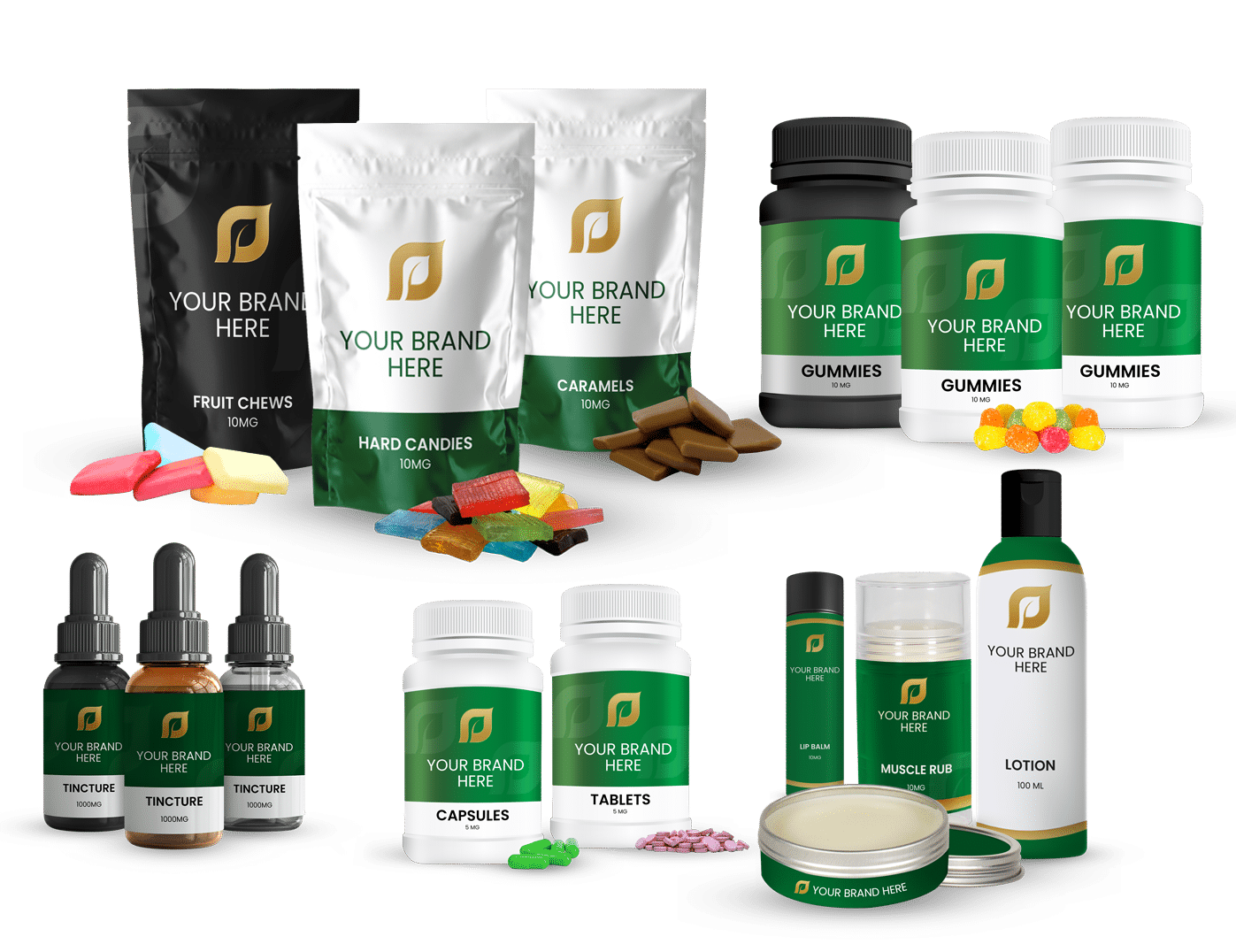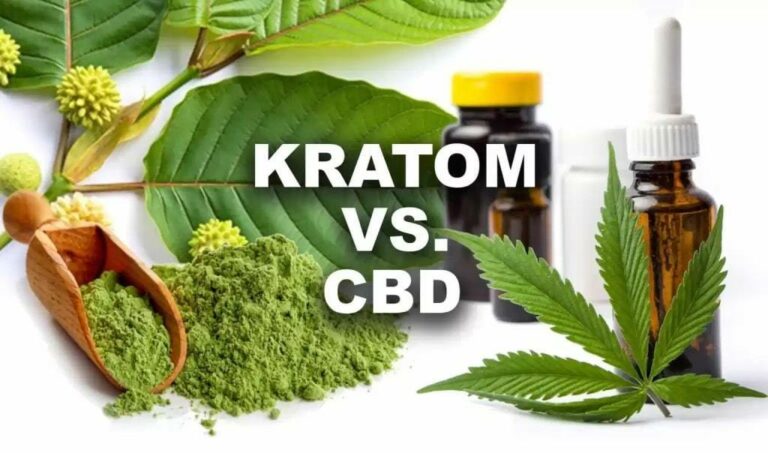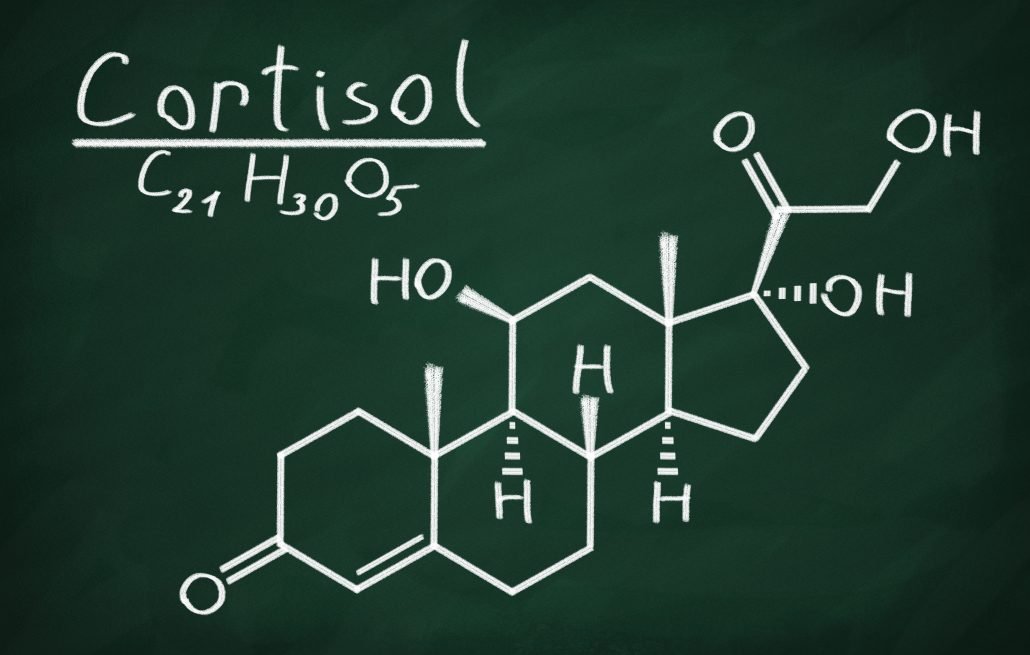Alternative medicine is a multimillion-dollar industry, and with better research and technology, science is quickly proving what many traditional communities have known for quite a long time, natural medicine is a powerful tool for health and mood. Two of the most promising natural medicines for stress reduction are CBD and ashwagandha.
Ashwagandha has been used as a remedy for stress and chronic pain for decades but has quickly caught on in the modern world with the boom in demand across age groups.
Cannabidiol, popularly known as CBD, generated over 1.8 billion dollars in sales in 2018. The irrefutable benefits of cannabidiol, especially the absence of the “high” associated with THC, have made it a best seller to people across different cultural, professional, and financial backgrounds. (1)
CBD and Ashwagandha are thought to have synergistic properties amplifying each of the other’s benefits when used in tandem. Stress relief, pain management, and sleep alignment are a few benefits attainable by using both CBD and Ashwagandha. Read on to clarify why you need to get in on the CBD and Ashwagandha bandwagon.
Table of Contents
ToggleWhat is Ashwagandha?
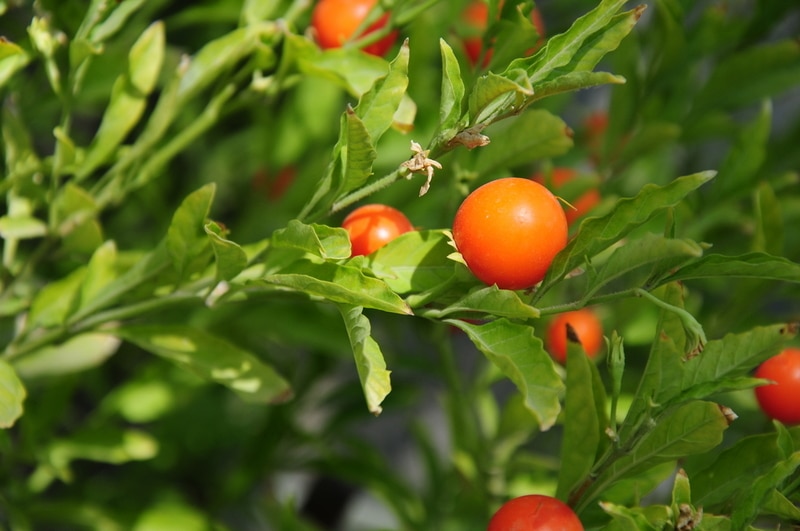
Whether you know it as Withania somnifera, winter cherry, or Ashwagandha, this versatile plant traces its origins to various continents. It is indigenous to Asia, specific parts of Africa, and isolated regions of the Middle East. Ashwagandha is a nightshade family member and an adaptogen, helping people cope with stress and irritation.
Ashwagandha has also been shown clinically to regulate the hormone cortisol, largely considered the body’s stress hormone. Parts of the Ashwagandha plant used for medicinal purposes include the roots, stems, flowers, leaves, and fruits.
Known Functions of Ashwagandha
Research on the mechanism of action of Ashwagandha is limited, but there is still plenty of promising evidence to demonstrate its numerous health benefits. Chemical components of Ashwagandha have been proven to:
Improve Activity and Circulation
In native India, healers administered Ashwagandha to increase the activity of docile patients and aid in their overall blood circulation. (2) Ashwagandha is said to give its users the strength of a horse, thus the name “Ashwa” (which means horse).
Manage the Effects of Stress
As an adaptogen, Ashwagandha goes a long way in helping users combat the adverse effects of stress on their bodies. From aging to hypertension, insulin resistance, and wrinkling, Ashwagandha may decelerate or halt the detrimental effects of stress. Sitoindosides and acyl steryl glucosides are the main active ingredients that confer adaptogen characteristics to Ashwagandha. (3)
Reduce Inflammation and Chronic Pain
Ashwagandha is a product of Ayurveda, a traditional medical practice from India. Ayurveda has the philosophy that health can be achieved by bringing balance to the body. Despite its folk medicine origins, modern research promotes Ashwagandha’s role in pain management.
For consumers looking for alternative methods to manage chronic pain, ashwagandha is a bestseller. It does an excellent job of numbing pain by reducing the sensitivity and excitability of pain receptors and nerve fibers. (4)
Lower Blood Pressure and Moderate Cardiac Output
So many things are labeled as “good for the heart” these days, but how true is that statement? For Ashwagandha, relaxation is taken to the next level by relaxing blood vessels in the body and lowering high blood pressure associated with elevated stress levels. Lower blood pressure conversely lowers the heart’s pumping rate making Ashwagandha “good for the heart.” (5)
Fertility Boost in Men
Men’s fertility depends on sperm viability, sperm count, sperm motility, libido, and physical capability. Ashwagandha has been proven to increase testosterone production by stimulating testosterone synthesis hormones. Testosterone is an essential sex hormone without which libido and fertility are directly impeded.
Ashwagandha also increases sperm concentration, directly improving conception odds. (6) Ashwagandha’s effects on physical activity also improve the desire to engage in sexual activity, setting users well on their way to a rejuvenated sex life.
Possible side Effects of Ashwagandha

The side effects of medicinal ashwagandha use are minimal and vary from one individual to the next. The wide variations may stem from insufficient research or unreliable first-person accounts. Depending on the method of ingestion of the drug, ashwagandha has several possible side effects.
Oral Ingestion
Taking Ashwagandha orally may be through capsules, its infusion in tinctures, in special candy, or even as measured addition in shakes or smoothies. Oral ingestion capabilities make ashwagandha perfect for consumers on the go, but anecdotal reports of users experiencing diarrhea, stomach upsets, occasional sweating, and vomiting.
In extremely rare circumstances, some users have accredited liver damage to ashwagandha use, but these claims are not verified. The improved gut motility that leads to diarrhea may also be a positive for ashwagandha as it may alleviate constipation in some people.
Skin Application through Skin Rubs and Ointments
For some people, skin application of ashwagandha is the most preferred method of use. This can potentially expose users to additional dermatological complications.
Symptoms are more likely with a prior history of skin rashes or sensitivities; therefore, so people with a history of sensitive skin might want to be careful. The risks include skin dehydration, itchiness, burning, flaking, redness, sores, and rashes.
Most of the risk factors discussed above manifest within the first three months of consistent daily use of ashwagandha. Long-term research has not been conducted, and consequently, the long-term effects of ashwagandha are still largely speculative.
Compared to other popular stress relief alternatives, ashwagandha has minimal side effects. Ashwagandha is the perfect product to add to your own medicine cabinet or product line in your store or website.
The Physiology of Stress, Anxiety, and Depression
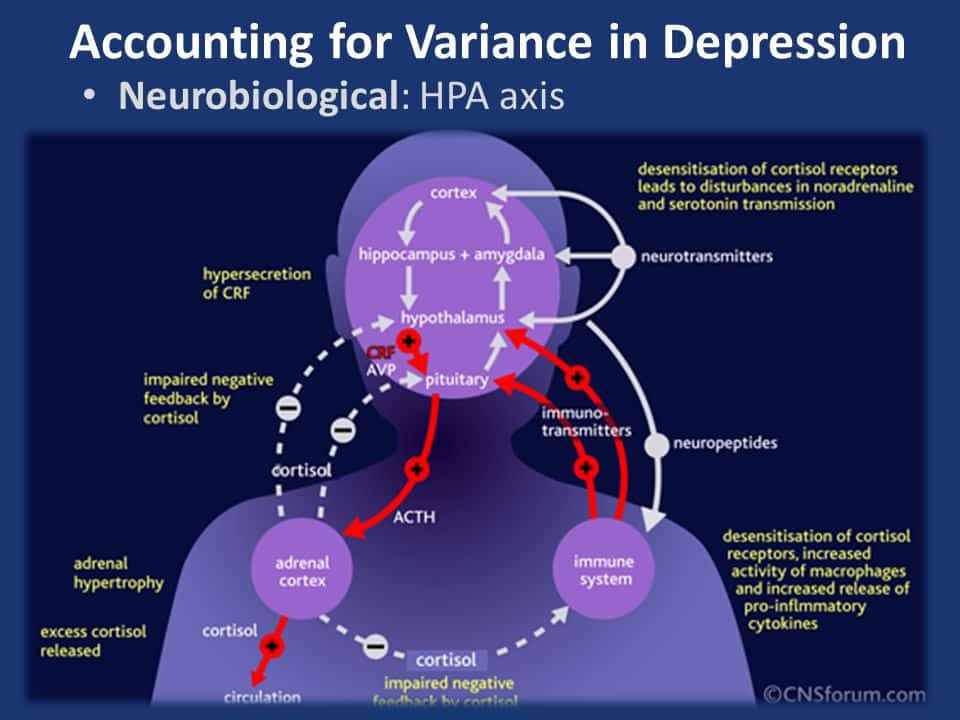
In the past, stress, anxiety, and depression were all considered psychological disorders, which remains true, but medicine tells us there’s more to the story. It isn’t all just in your head. This untidy trio has physiological implications that affect the nervous system and several other body systems. Stress is usually the initial condition, quickly followed by anxiety and occasionally depression.
Modern research is showing a common mechanism for stress, anxiety, and depression through the activity of the HPA axis. When this physiological system is out of balance for too long, people are likely to become depressed.
Stress and Cortisol
Cortisol is the body’s chief stress hormone. Endocrinology, the study of hormones in the human body, is fairly recent, only garnering widespread international research in the 1960s. While much research has been conducted in the interim, cortisol, like many other hormones, is not completely understood.
One key indicator of stress in people is elevated cortisol. Whether the stress is psychological or you are in pain from an injury, cortisol invades your body tissues. Cortisol acts as a steroid to reduce inflammation and induce short-term healing. In the long term, unregulated cortisol can cause a lot of damage to tissues and the nervous system.
Research shows that CBD helps to regulate cortisol through indirect but powerful methods. This is one of the key reasons for CBD’s success in helping with stress and anxiety.
Ashwagandha, unlike CBD, is clinically proven to assert its influence on the body by directly affecting cortisol-mediated pathways. As mentioned earlier, stress causes a spike in cortisol secretion that persists for the duration of the stressful stimulus, and taking Ashwagandha at such a time leads to a steady drop in cortisol levels.
Stress as a Vicious Cycle
Stress, when left unchecked, will affect multiple aspects of your life. From your sex life, social life, health condition, and even your sleep cycle. Because of its detrimental effects on many aspects of normal life, stress might lead to secondary characteristics such as low libido, withdrawal from social activities, anxiety, and eating disorders.
The secondary characteristics predispose one to avoid stress-relieving behaviors like exercise and socializing, creating a vicious cycle. Stress management, therefore, is arguably one of the most important psychological interventions.
Ashwagandha Vs. CBD: Pairing for Stress Relief
When exploring natural Botanics to add to your daily routine, you will most probably come across various products, including lavender or chamomile. It is easy to imagine why these plants are big hits. Lavender smells lovely, as does chamomile, but their effects are mild at best.
To maximize natural stress relief, one must consider cannabis products and other powerful herbs from traditional medicine. CBD and Ashwagandha are at the top of the search results page for natural stress relief and quickly becoming pharmacy staples across the country. Taken individually, they provide many benefits, but why take one when you can take both?
Pairing medicinal drugs can be a risky endeavor and is often shunned by experts, especially when the pair has complementary properties, but this doesn’t need to be a concern with CBD and Ashwagandha as their safety profiles are outstanding. The benefits of CBD include:
- Reduced stress, anxiety, and depression
- Alleviating conditions such as epilepsy and ALS
- Treating specific addictions
- Countering the effects of PTSD
- Managing chronic pain
- Promoting normal sleep patterns
From the benefits of ashwagandha discussed earlier, it is evident that there are several similarities between both cannabidiol and ashwagandha, most notably in pain and stress management. However, a clear distinction arises in the mechanisms of action.
How Does CBD Help in Stress Management?
CBD regulates the endocannabinoid, cardiovascular and nervous systems to bring about an overall feel-good experience. (7) Because CBD has a regulatory, harmonizing effect, it helps to bring people back into balance.
Ashwagandha is thought to primarily fight stress by reducing levels of the stress hormone cortisol. Despite their disparities, both CBD and Ashwagandha are potent and proven stress relievers.
CBD and Ashwagandha: Compounded Effects

Can you take the best out of both worlds of cannabidiol and ashwagandha without suffering negative repercussions? The answer is yes. Because of their safety profiles and similar characteristics and effects, you can use CBD and Ashwagandha simultaneously to fight stress.
For aspiring supplement entrepreneurs, selling a CBD-ashwagandha combination is easy with the right research, marketing, and sales strategy.
To incorporate CBD and Ashwagandha, you need to understand the consumers’ desires beyond health. Some people are looking for a sweet treat that also helps them to feel better. For this group of people, infusing recommended doses of CBD and Ashwagandha in gummy bears is an excellent option.
An oil tincture that goes under the tongue is a worthy option for those interested in getting the relaxation in as quickly as possible. Such people are usually willing to tolerate the slightly unpleasant taste of CBD oil. Customers from the fast-paced corporate world are more likely to resonate with this option.
There are numerous routes to explore, including topical products. As a pair, CBD and Ashwagandha complement each other’s characteristics. The most significant effects that are compounded by pairing CBD and Ashwagandha include:
- Relaxation, and stress management
- Reduced blood pressure, hypertension management, and reduced cardiac output
- Harmonious sleep cycle, alleviating insomnia, sleep paralysis, and irritability
- Chronic and acute pain relief
- Managing neurological conditions such as PTSD and ALS
- Increased activity and free circulation of blood and tissue fluid
- Inflammation management
- Increased neural activity, creativity, and imagination
With more and more research into CBD and ashwagandha, the future looks bright for a blended product. Popularity on the market is a major driving force to inspire researchers to take a deeper look. We continue to learn more and more about how to best combine the two products.
CBD and Ashwagandha: What are the Risks?
Like any other medicines and natural Botanics, mixing CBD and ashwagandha is risky, especially when the consumer has an underlying condition. It is always advisable for you to seek advice from a qualified physician before starting on any new drug.
Like any helpful medicinal, the dosage is key. CBD has a huge safety window, but it’s still possible to take too much. Ashwagandha has a smaller therapeutic window. The key idea is more doesn’t always create a better outcome. Too much is too much.
It’s also important to make sure that all supplements have been thoroughly tested by a third-party laboratory. Ashwagandha in particular, can have high levels of heavy metals. The only way to know if a product is safe is to have it tested by a reputable lab.
To stay on the safe side, retailers must conduct adequate research on both substances before attempting to come up with a product that relies on either or both substances. Research points are available with the FDA and other regulating bodies governing the use and distribution of CBD, ashwagandha, and other cannabinoids.
Other Ashwagandha Products
Ashwagandha is a versatile product. It can be consumed in various ways, and packaging and marketing are equally versatile. You may choose oil tinctures, supplement mixes, ground powder tablets, skin rubs, and many other options when settling on a way to use or package ashwagandha.
The Bottom Line: Is Ashwagandha a Worthy Investment?
Whether you are looking for the opportunity to improve your mental and physical health or you are looking for the opportunity to diversify your product portfolio by introducing a new top-shelf product, ashwagandha is a long-term winner with growing success.
With changing legislation in many states, cannabinoids and other herbal extracts will be top-grossing products for the foreseeable future. Additional research will also convince consumers and physicians alike that these substances are safe and effective, guaranteeing the future of ashwagandha and CBD for the greater population.
Frequently Asked Questions about CBD and Ashwagandha
If you still have questions about CBD, Ashwagandha, and how they may interact as a pair, then you are not alone. Below are a few frequently asked questions about both substances.
Does Ashwagandha Have Adverse Side Effects?
Despite the insufficient research on ashwagandha, it has been proven that the side effects are minimal and mild on a short-term basis. However, results are inconclusive for the long-term use of Ashwagandha.
Can you Use Ashwagandha with Antidepressants?
The interaction between drugs and natural botanicals is an important consideration when settling for a herbal remedy for stress management. Consult your physician for an accurate assessment of the implications of CBD and ashwagandha use along with prescribed medications.
What is the Best Ashwagandha Strain?
There are multiple ashwagandha extracts available in the market that vary in purity and potency. Sensoril, Shoden, and KSM-66 are proprietary extracts with consistent levels of active constituents that are supported by strong research.
References
- https://www.statista.com/statistics/760498/total-us-cbd-sales/
- https://www.researchgate.net/profile/Mruthyumjaya-Meda/publication/301508841_Uses_of_Withania_somnifera_Linn_Dunal_Ashwagandha_in_Ayurveda_and_its_Pharmacological_Evidences/links/5a33ad25458515afb691e0ec/Uses-of-Withania-somnifera-Linn-Dunal-Ashwagandha-in-Ayurveda-and-its-Pharmacological-Evidences.pdf
- https://www.ncbi.nlm.nih.gov/pmc/articles/PMC6979308/
- https://health.clevelandclinic.org/what-is-ashwagandha/
- https://www.tandfonline.com/doi/abs/10.1080/09735070.2012.11886427
- https://www.sciencedirect.com/science/article/abs/pii/S1472648317306259
- https://link.springer.com/article/10.1007/s00213-021-05823-w


